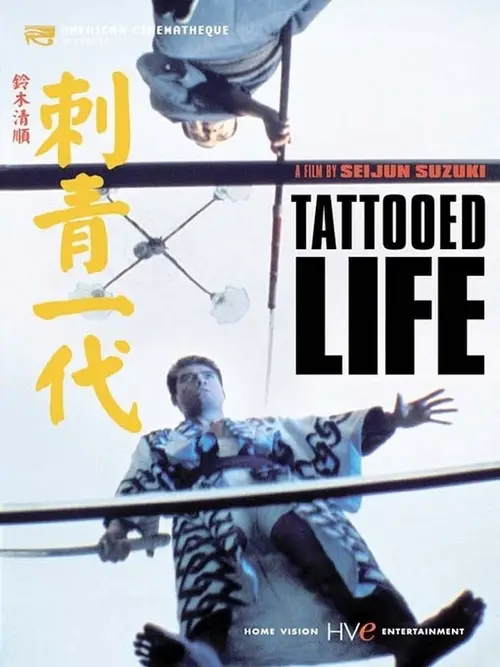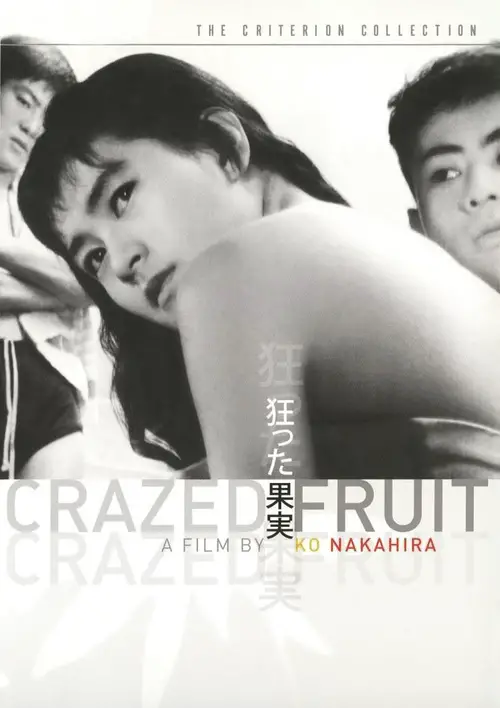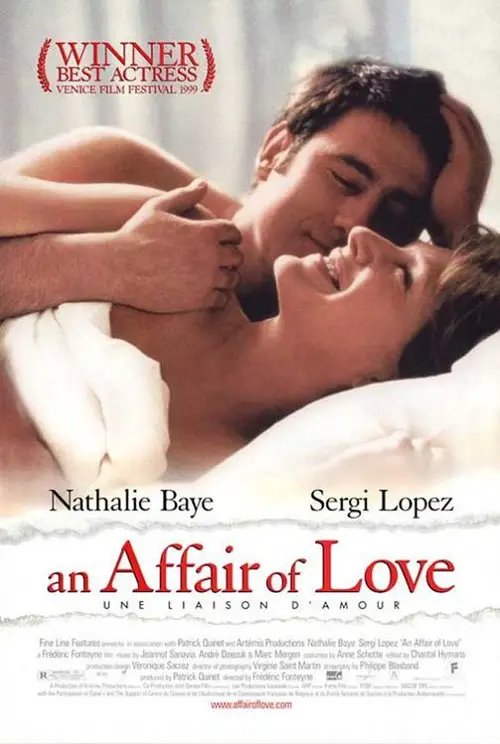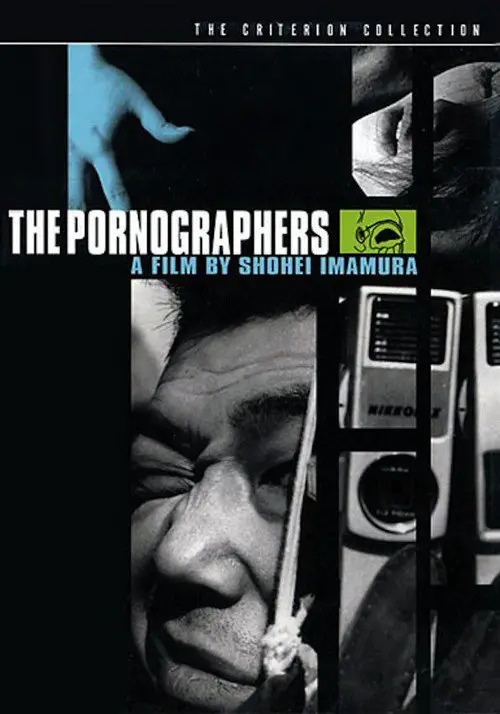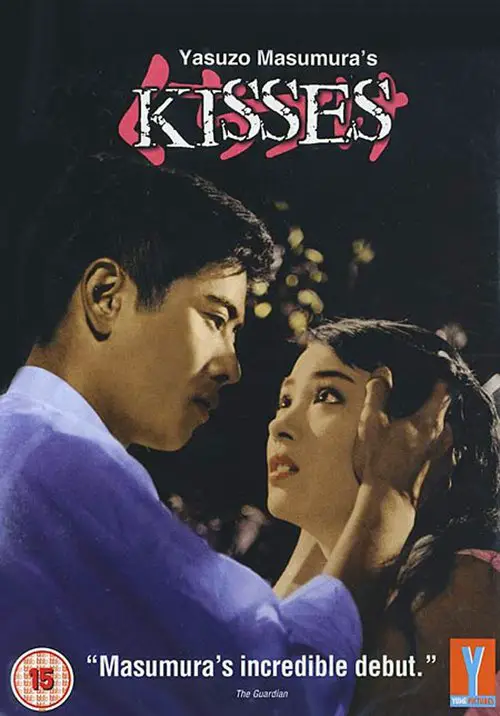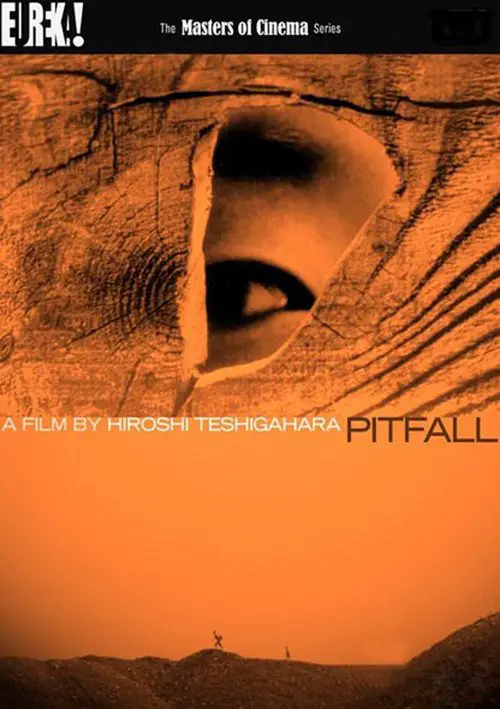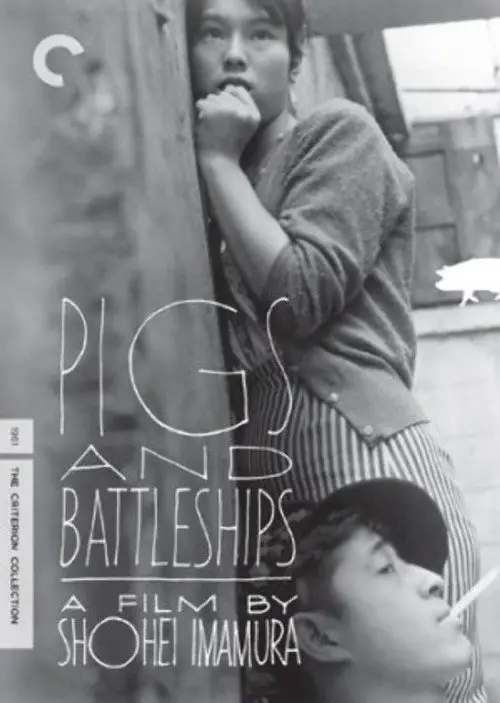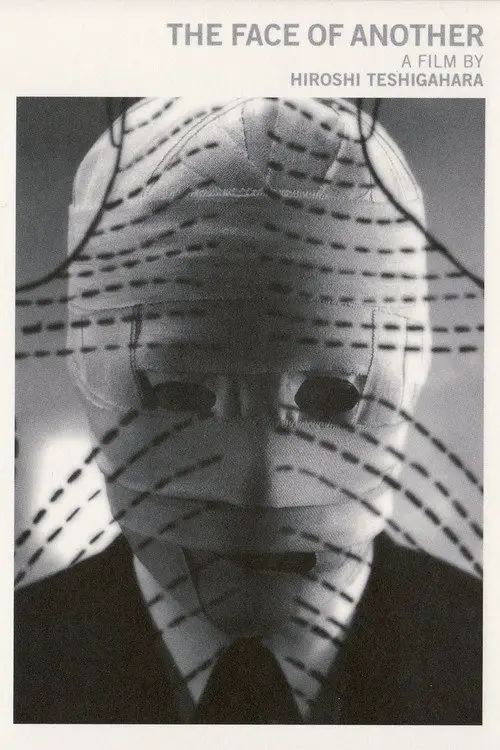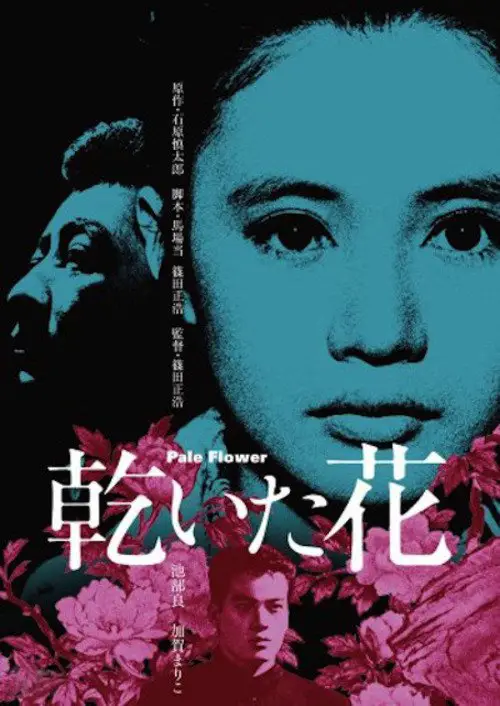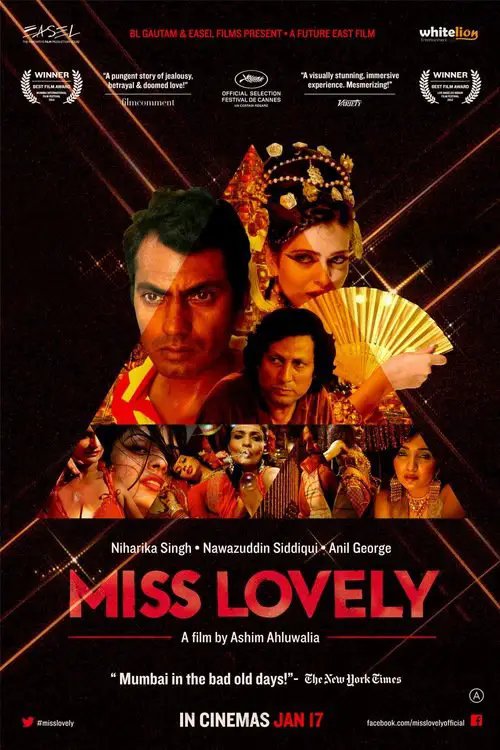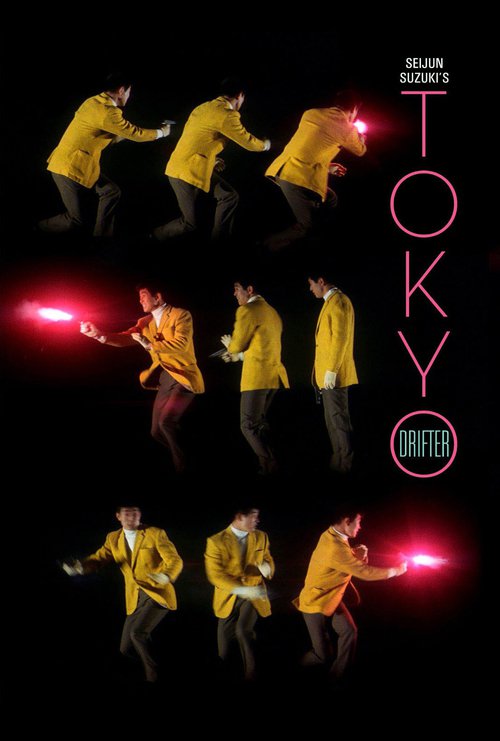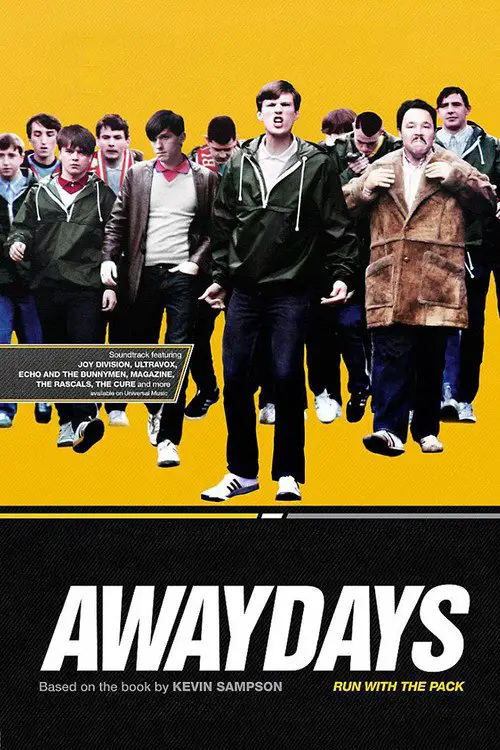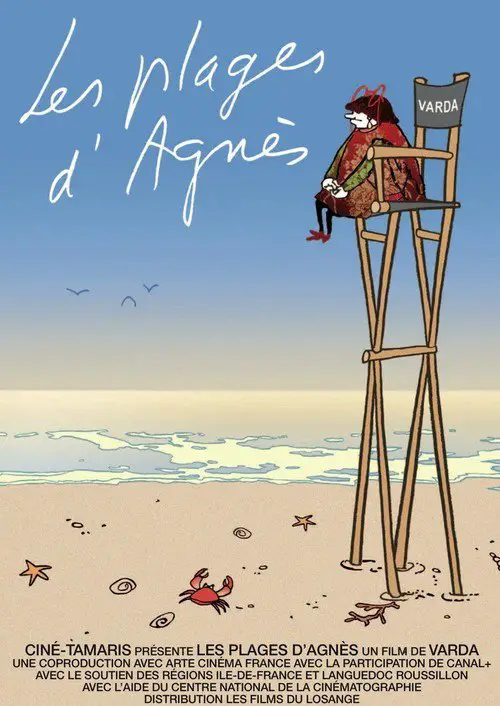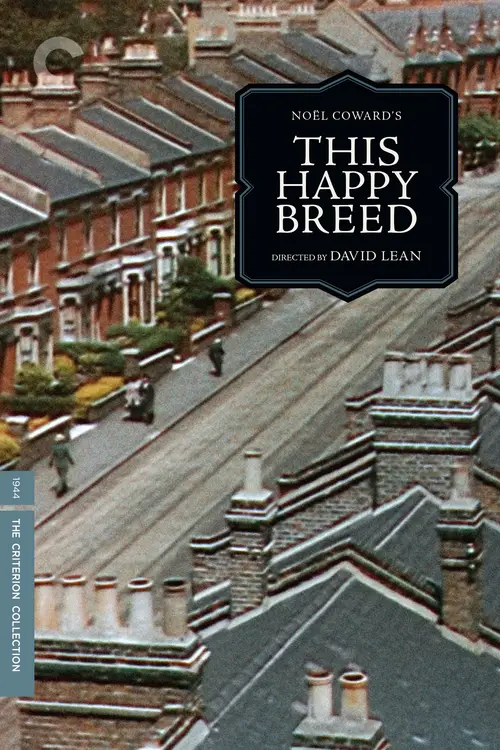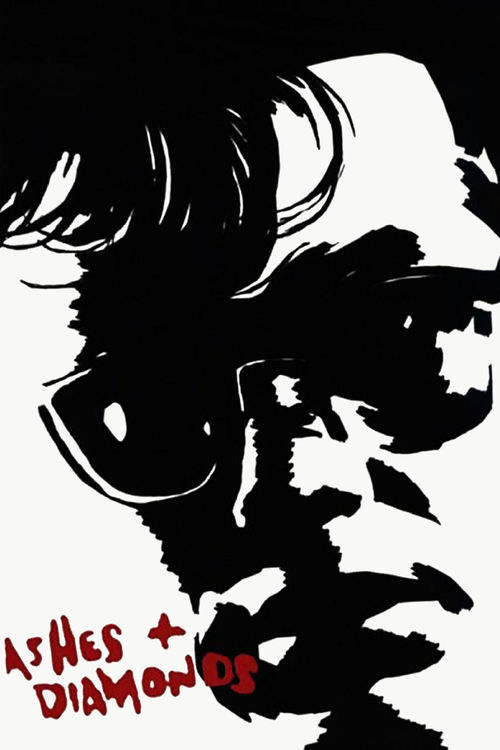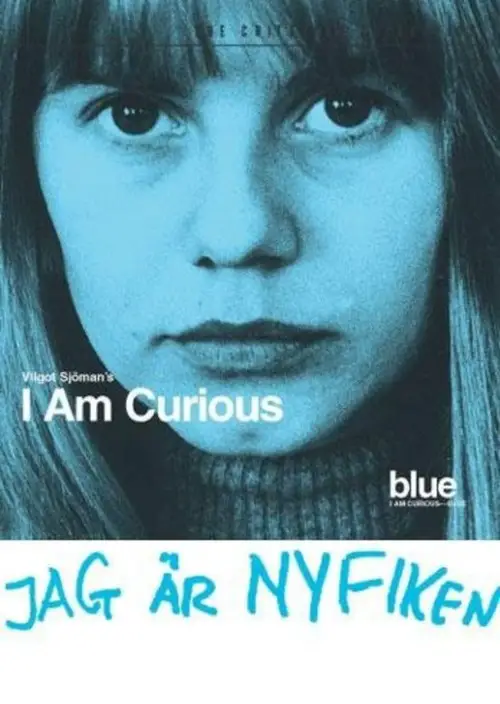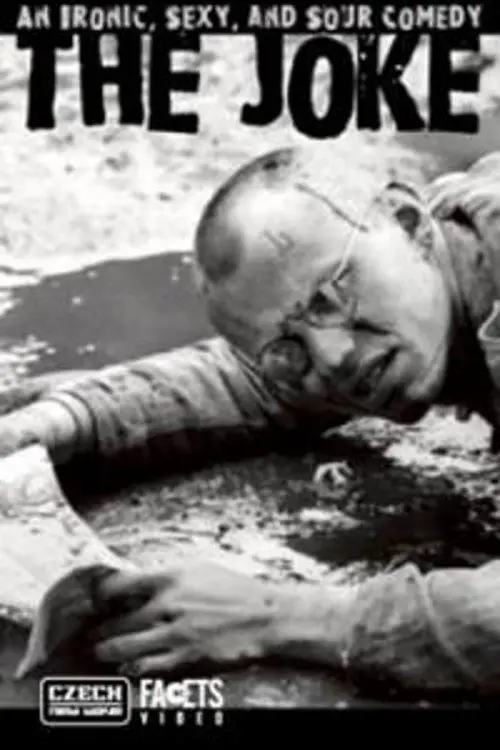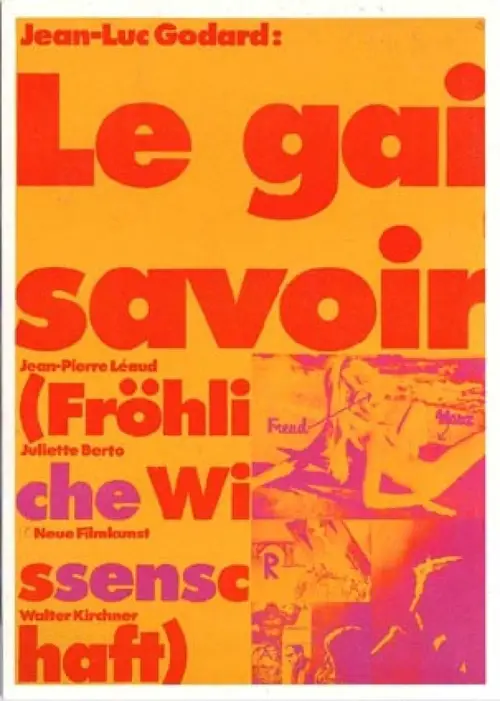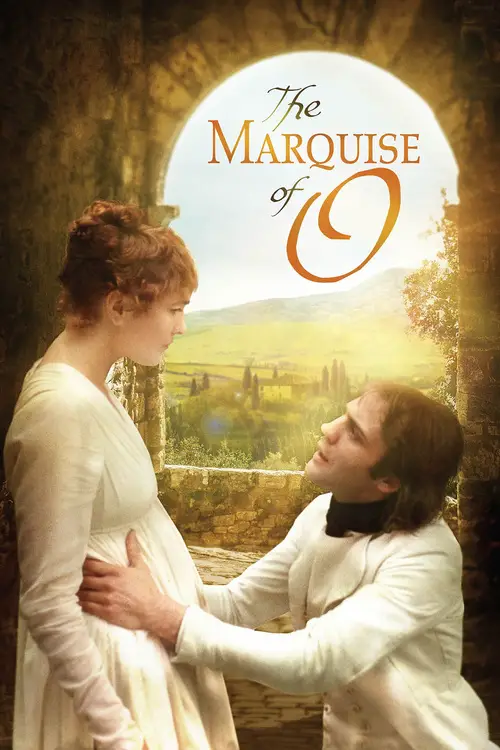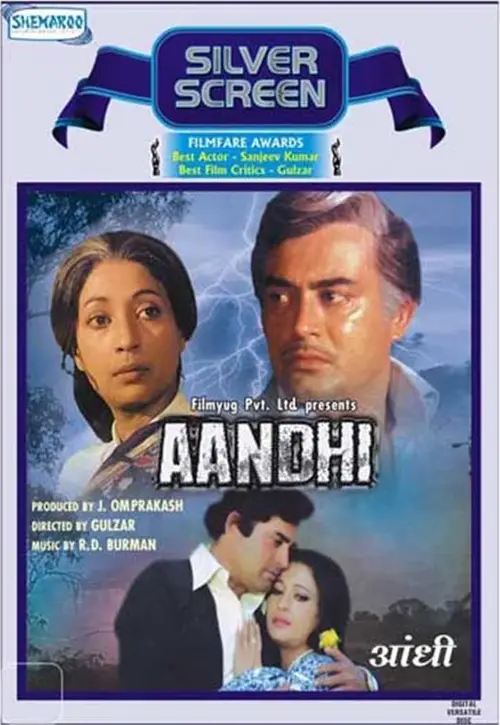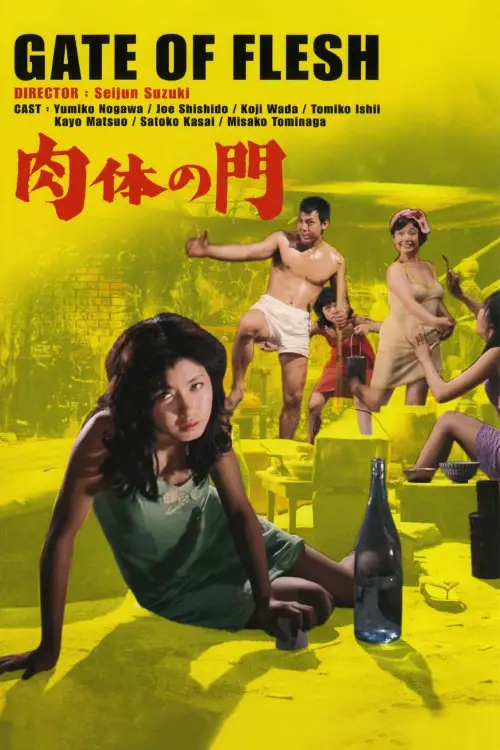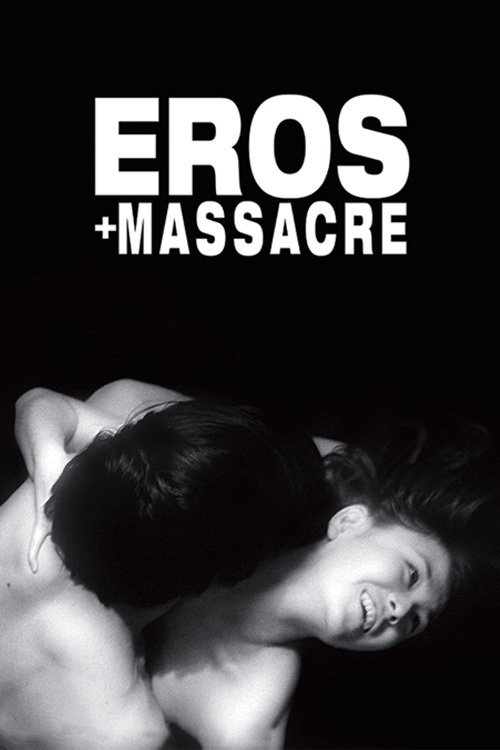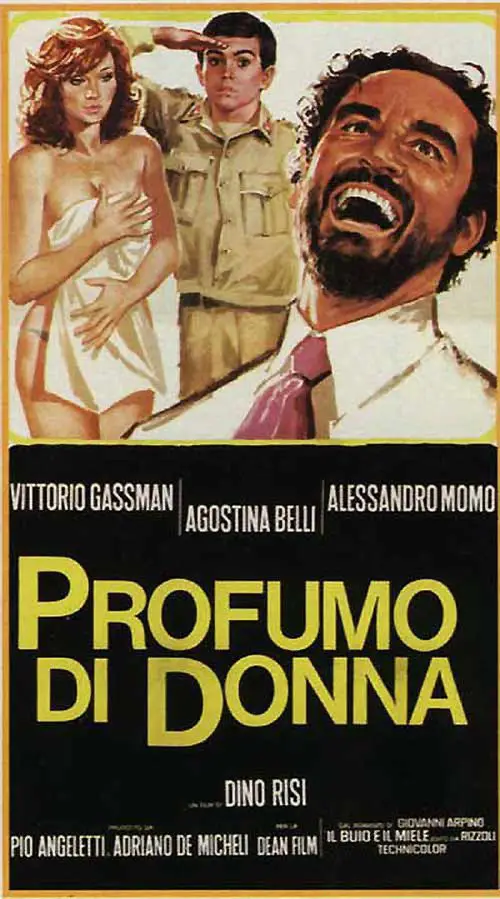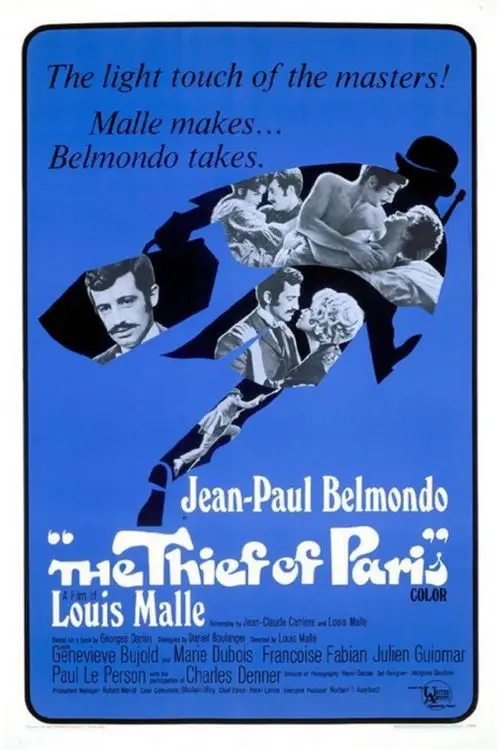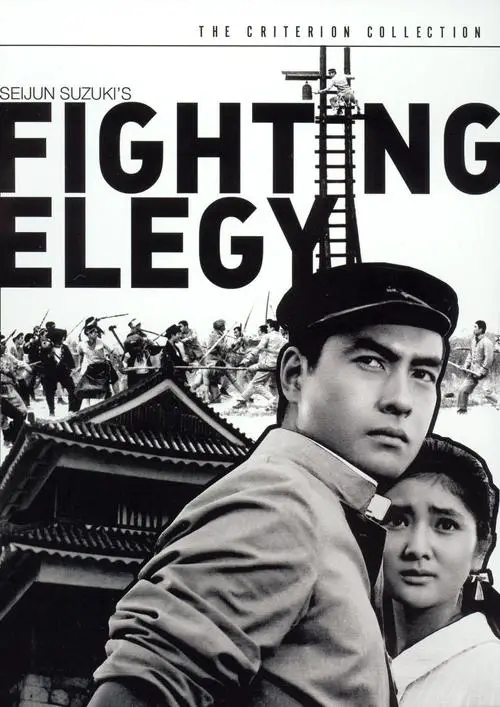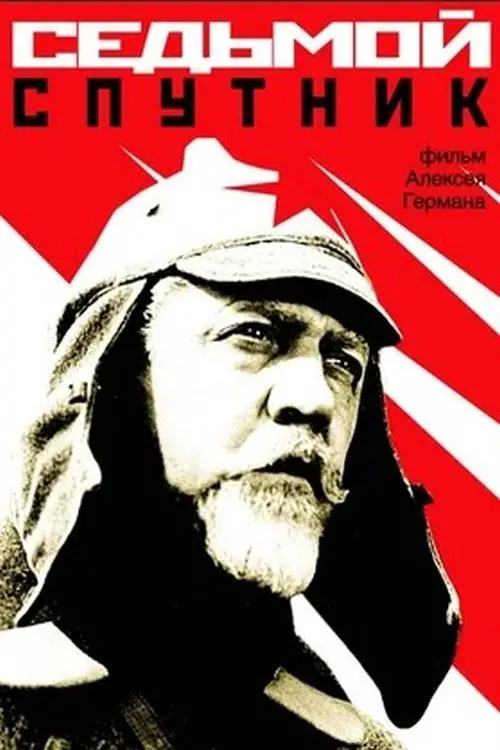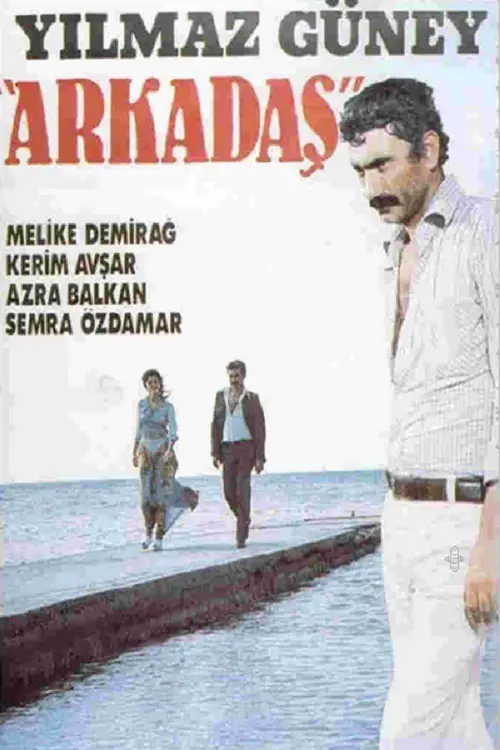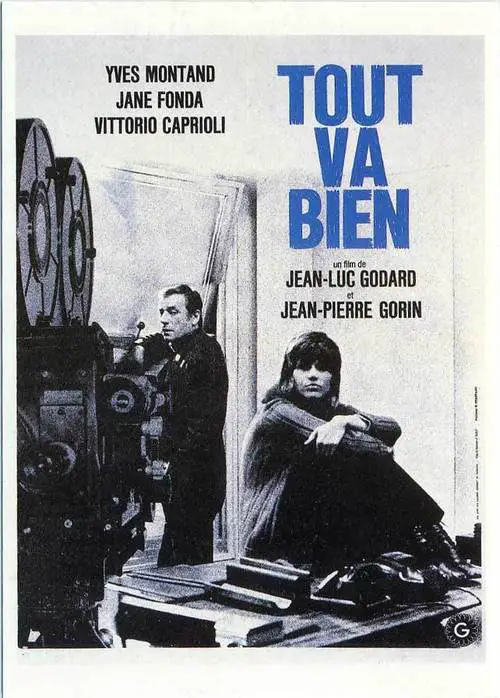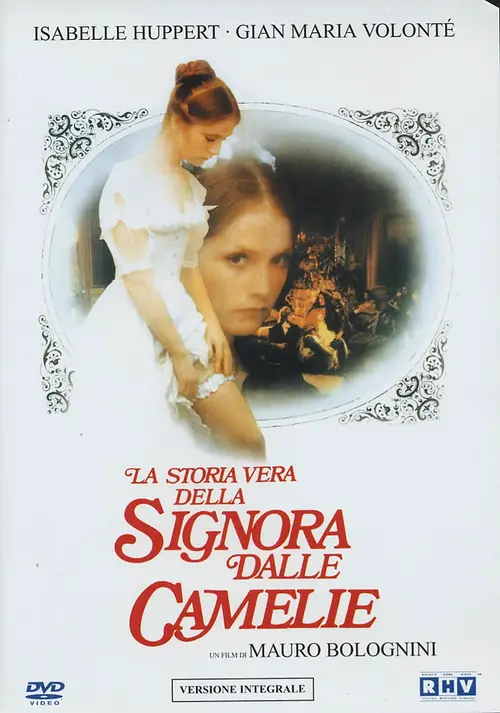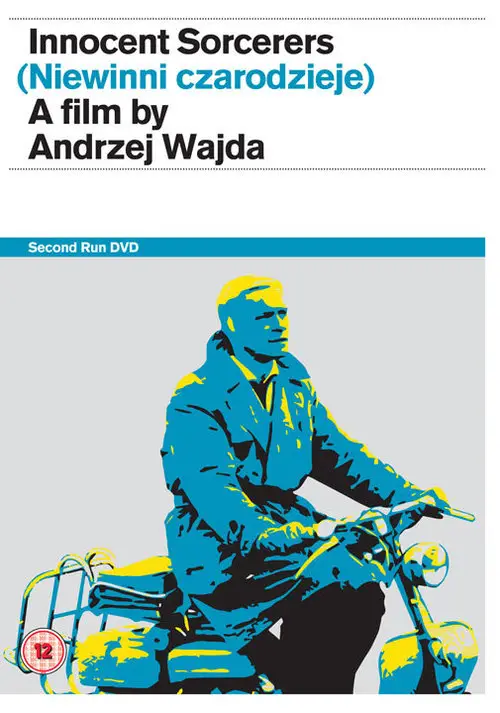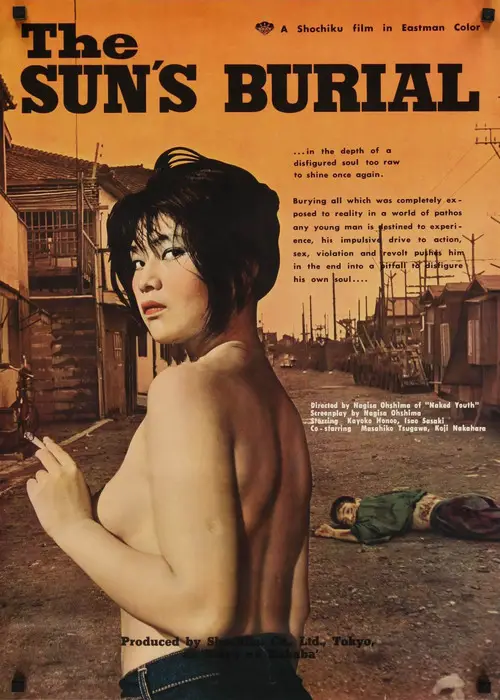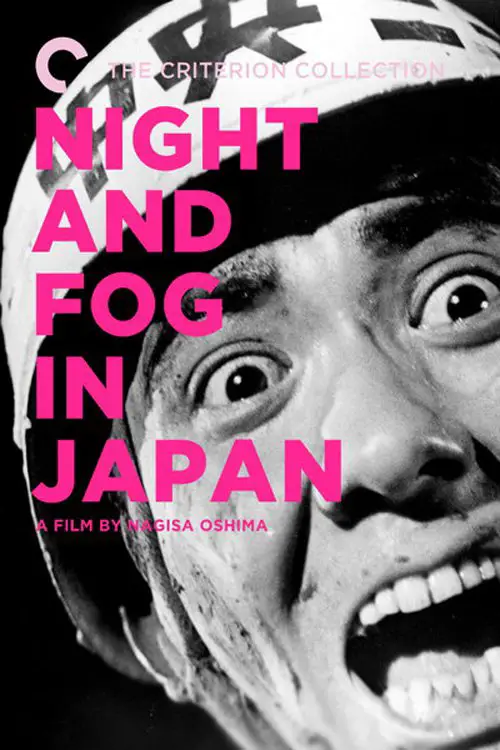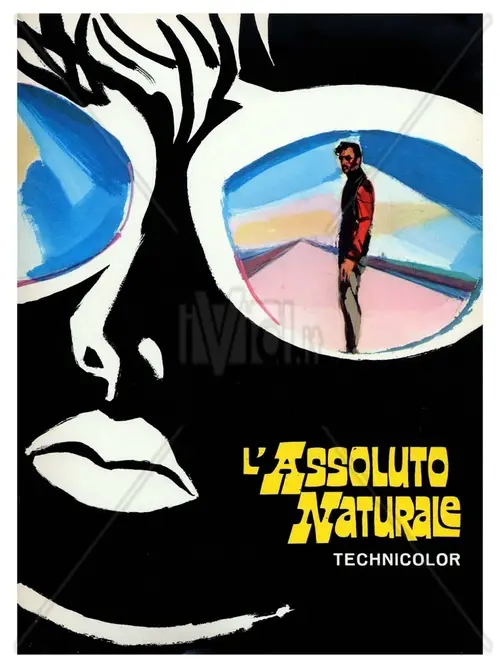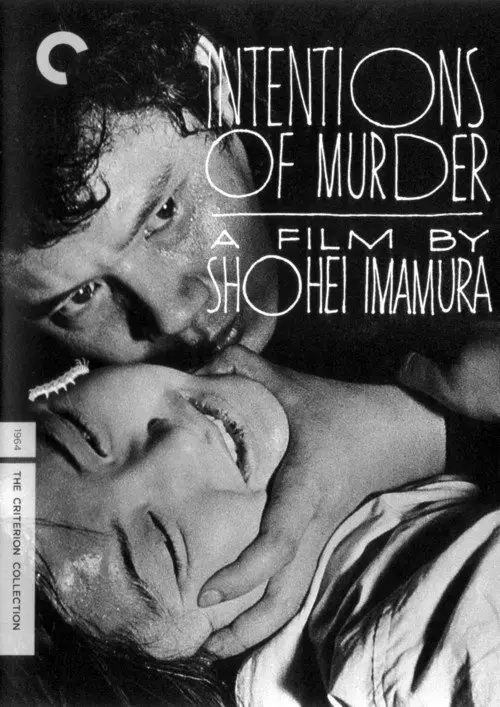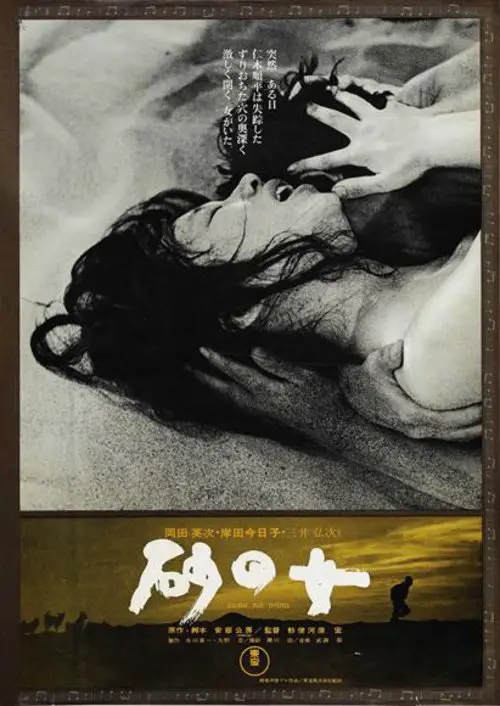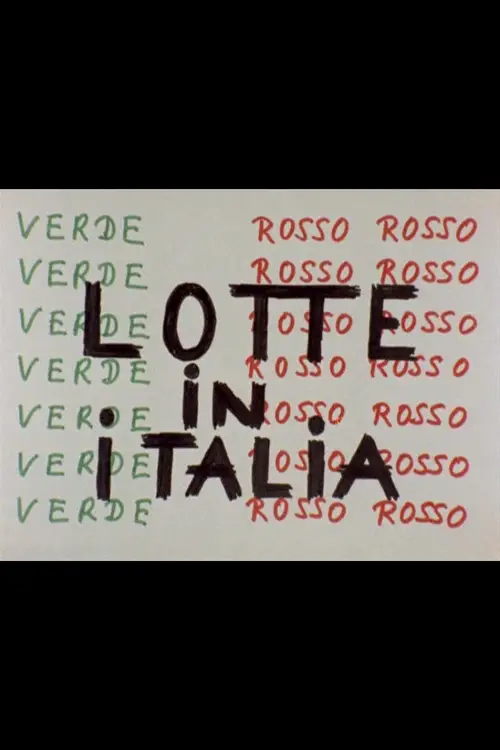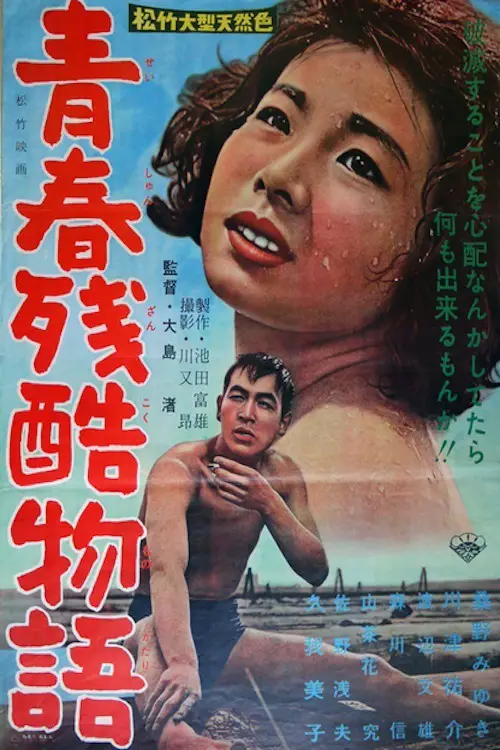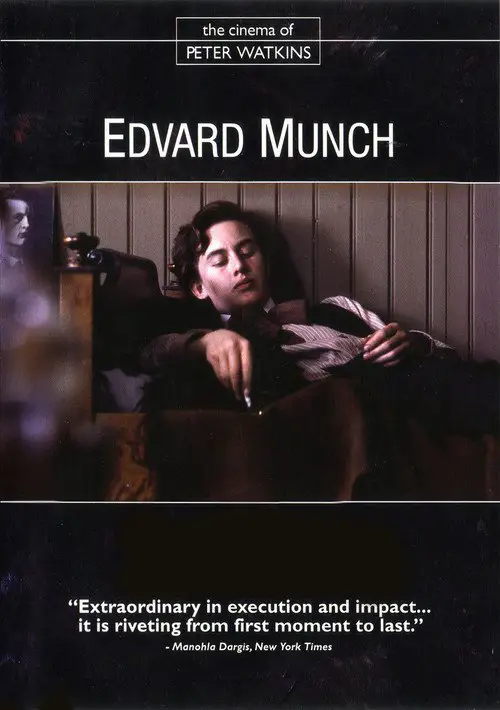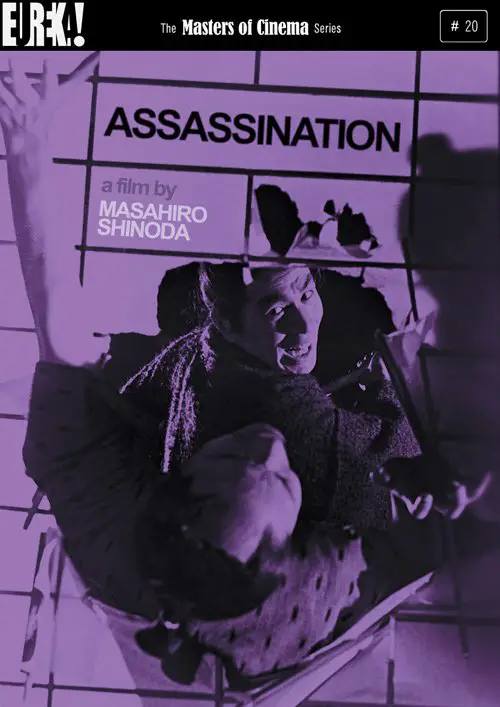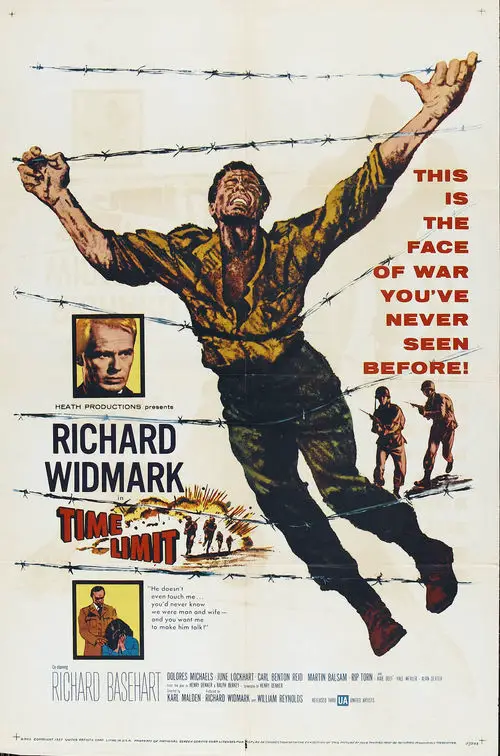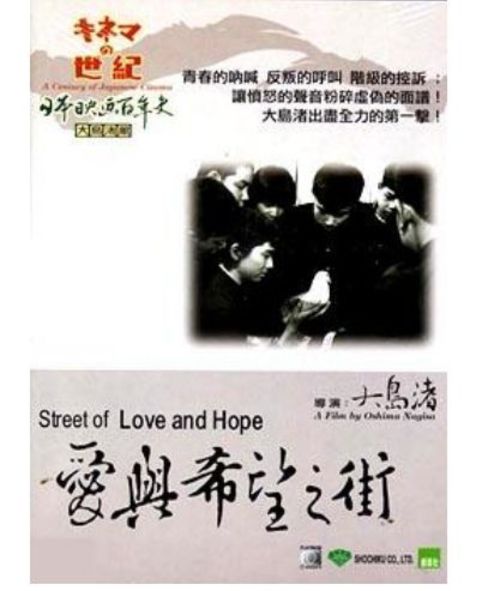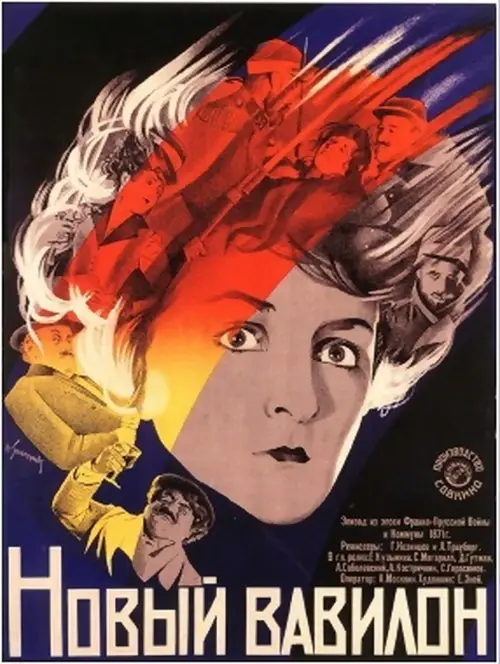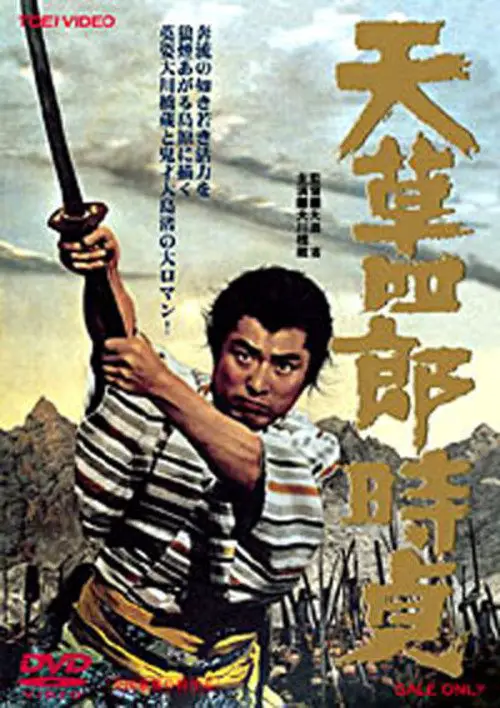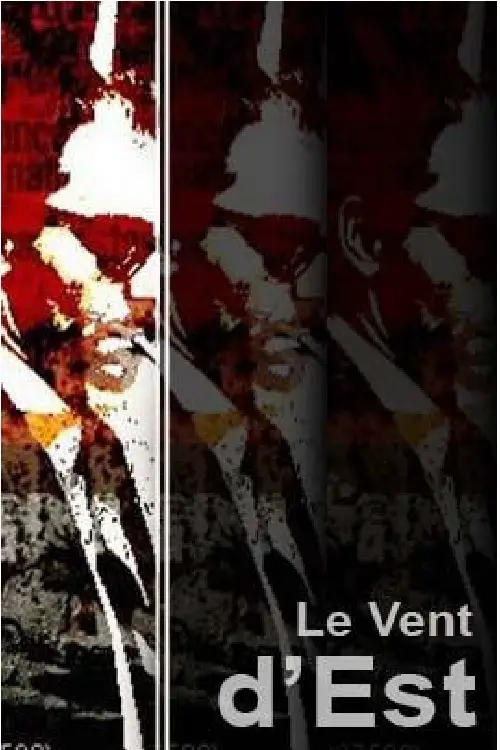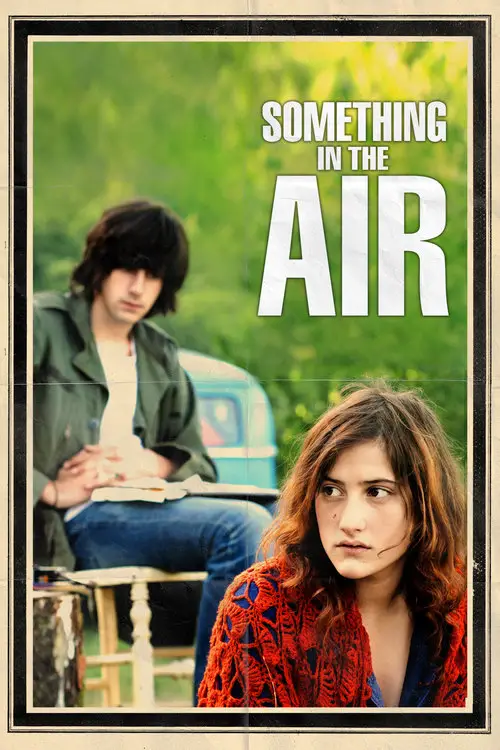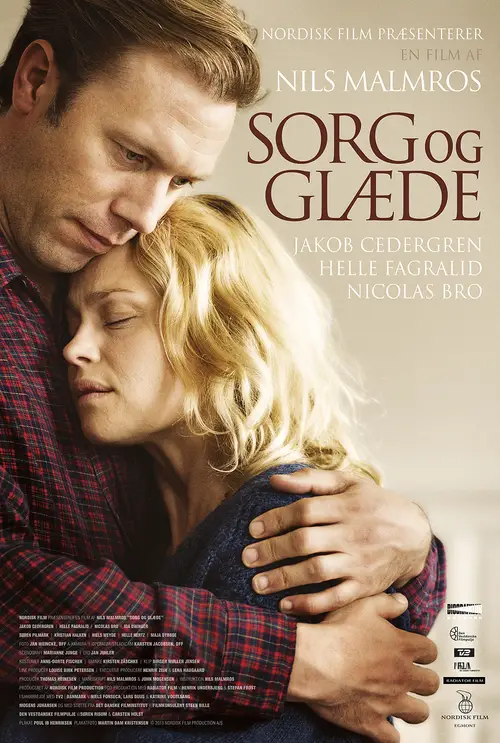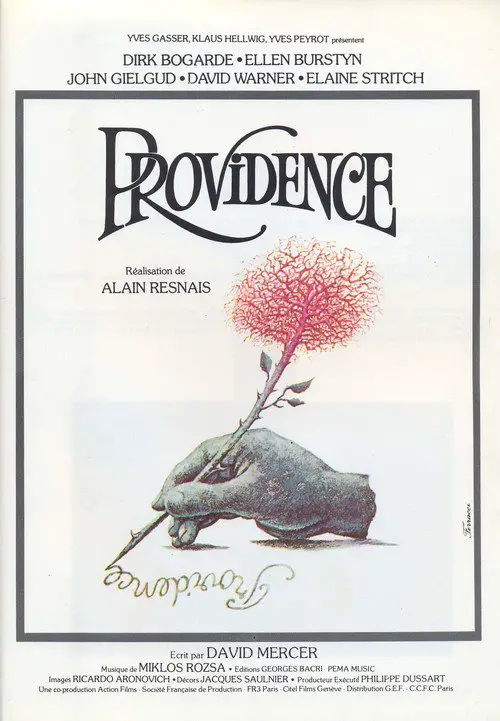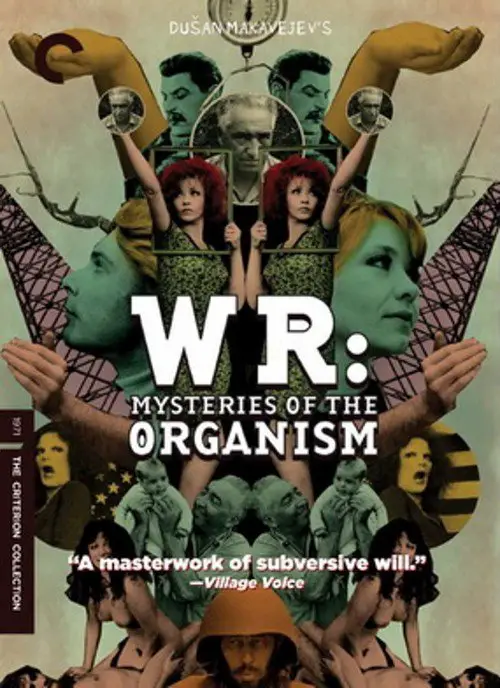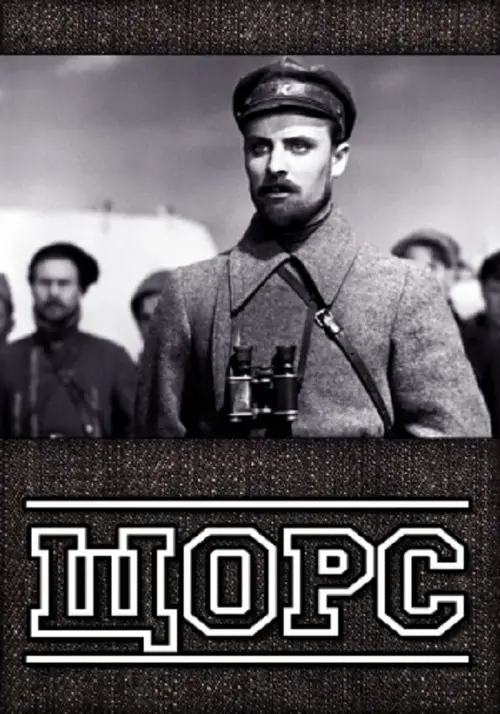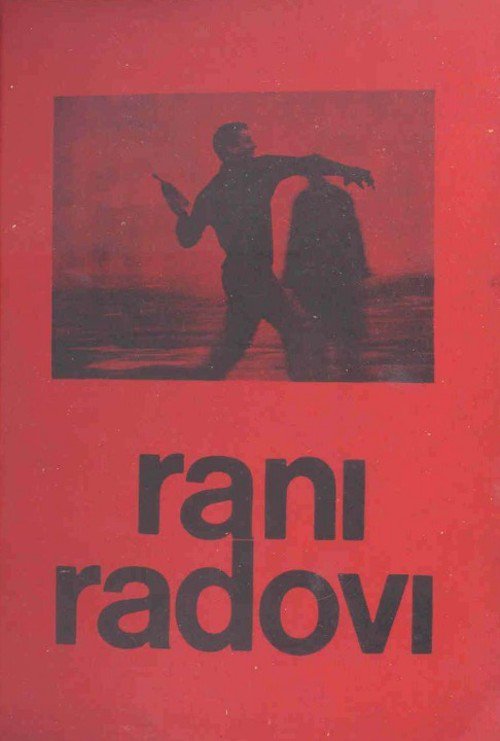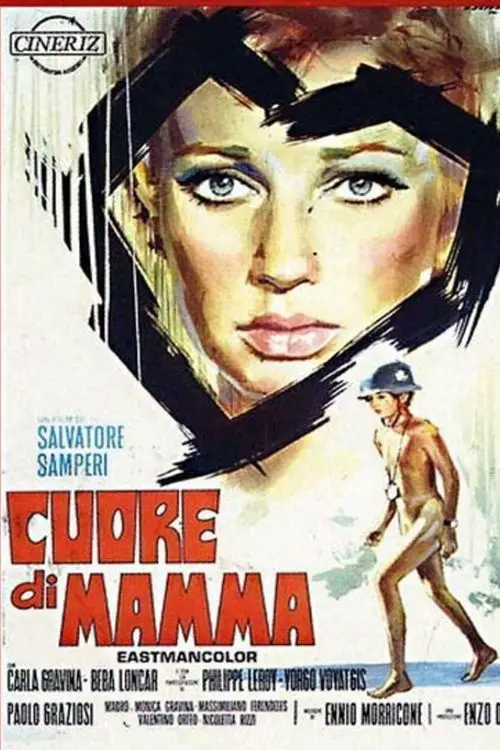She and He (1963)
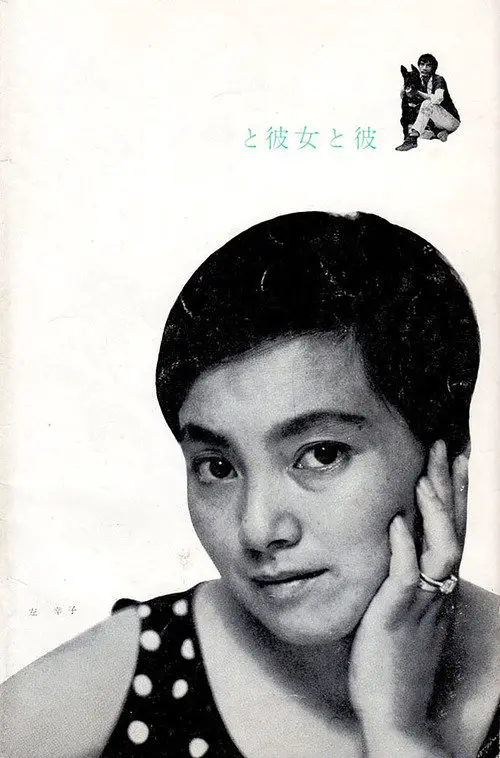
Similar movies
âTattooed Life' begins with a parasol wielding Yakuza assassin attacking a rickshaw. It almost looks like feudal Japan until somebody pulls a gun and we're reminded that it's the 20th century. Post-shooting, the assassin delivers his bounty to his brother (to pay for his art school education) before getting ambushed in one of the few rickshaw-jacking incidents in film history, and being rescued by his art-student brother. In the aftermath, one brother is marked for death by the Yakuza, and the other brother won't go to art school with blood on his hands, so they decide the perfect way to deal with such hardships is to become fugitive construction workers in northern Japan . And why not?
They recount their impressions to the Interviewer. They met through a magazine ad, She and He. They corresponded through the Internet. He responded to her ad seeking someone to fulfil her fantasy for "a pornographic affair". This is their first meeting in a Paris café. He's a little reticent. She wants to know whether or not he's hairy. (He is; he's Spanish.) They retire to a nearby hotel room. The door of the room closes. Unseen, the affair is consummated... They continue to see one another regularly each week. They find they get along well together. Soon she suggests that they try normal sex the next time...
Mr. Ogata lives a complicated life: he's is a pornographer making two skin flicks per day and trying to stay beneath the radar screen of the local mob; he deeply loves his ailing wife Haru who's cursed by the restless spirit of her dead first husband; he also has a mistress, a step-son who wants to go to university, and a step-daughter entering adolescence. He lusts after his step-daughter, and he asks Haru if he can marry her. Haru agrees to his plan, signs over her business to him, and a crisis ensues when Ogata uses her nest egg to buy equipment so he and his pals can set up their own film processing lab. Surreal images and events weave their way into Ogata's life.
The first of what Luis Buñuel later proclaimed a trilogy (along with The Discreet Charm of the Bourgeoisie and The Phantom of Liberty) about âthe search for truth,â The Milky Way (La voie lactee) daringly deconstructs contemporary and traditional views on Catholicism with ribald, rambunctious surreality. Two French beggars, present-day pilgrims en route to Spainâs holy city of Santiago de Compostela, serve as Buñuelâs narrators for an anticlerical history of heresy, told with absurdity and filled with images that rank among Buñuelâs most memorable (stigmatic children, crucified nuns) and hilarious (Jesus considering a good shave). A diabolically entertaining look at the mysteries of fanaticism, The Milky Way remains a hotly debated work from cinemaâs greatest skeptic.
Kinichi and Akiko meet when they visit their fathers in prison. After successfully gambling on a bicycle race, they spend an enjoyable day together at the beach. Akiko, who tries to make money as an artist's model to pay for her mother's medical expenses, now has to find 100,000 yen to pay off the company from which her father embezzled. Kinichi also requires 100,000 yen as bail for his father, who is accused of election fraud. Kinichi tries to borrow 100,000 yen from his mother, whom he has not seen for three years.
Muraki, a hardboiled Yakuza gangster, has just been released from prison after serving a sentence for murder. Revisiting his old gambling haunts, he meets Saeko, a striking young upper-class woman who is out seeking thrills, and whose presence adds spice to the staid masculine underworld rituals. Muraki becomes her mentor while simultaneously coping with the shifts of power that have affected the gangs while he was interred. When he notices a rogue, drug-addicted young punk hanging around the gambling dens, he realizes that Saeko's insatiable lust for intense pleasures may be leading her to self-destruction.
Filmmaking icon Agnès Varda, the award-winning director regarded by many as the grandmother of the French new wave, turns the camera on herself with this unique autobiographical documentary. Composed of film excerpts and elaborate dramatic re-creations, Varda's self-portrait recounts the highs and lows of her professional career, the many friendships that affected her life and her longtime marriage to cinematic giant Jacques Demy.
Maciek and Andrzej, two home army fighters, were paired and ordered to kill an incoming communist party cadre. At the hotel where their target's welcoming party is being held. Maciek meets the barmaid Krystyna and the two have a brief, passionate affair, before he is pulled away from this fleeting happiness into his deadly mission.
The same movie with the same characters, cast and crew as I am Curious (Yellow), but with some different scenes and a different political slant. The political focus in Blue is personal relationships, religion, prisons and sex. Blue omits much of the class consciousness and non-violence interviews of the first version. Yellow and Blue are the colors of the Swedish flag.
Night after night, not long before dawn, two young adults, Patricia and Emile, meet on a sound stage to discuss learning, discourse, and the path to revolution. Scenes of Paris's student revolt, the Vietnam War, and other events of the late 1960s, along with posters, photographs, and cartoons, are backdrops to their words. Words themselves are often Patricia and Emile's subject, as are images, sounds, and juxtapositions.
J.K. is a hotel Manager in a scenic location in India. One day he gallantly comes to the rescue of a drunk daughter, Aarti, of a politician, and chooses to be discrete about it. When she recovers, she and he fall in love; get married in a small marriage ceremony, have a daughter, and thereafter differences arise to such an extent that they decide to separate. Years pass J.K. and Aarti meet again when she is an established politician, both are still attracted to each other, but she does not want her name to be tarnished and stigmatized as a "separated" woman.
A sparkling comedic chronicle of a middle-class young manâs romantic misadventures among New York Cityâs debutante society. Stillmanâs deft, literate dialogue and hilariously highbrow observations earned this debut film an Academy Award nomination for Best Original Screenplay. Alongside the wit and sophistication, though, lies a tender tale of adolescent anxiety.
After World War II, some Tokyo prostitutes band together with a strict code: no pimps, attack any street walker who comes into our territory, defend the abandoned building we call home, and punish whomever gives away sex (who falls in love). Maya, a young woman whose family has died, joins the group. Into the mix comes Shin, a thief who's killed a G.I. The women allow him to hide while recovering from wounds, but then he won't leave. Maya is drawn to him, discovering as she falls in love that she can feel again; she's now more fully human, but at the same time, she's endangered herself and her livelihood. Can she and Shin make it out of Tokyo to establish life as a couple?
At a dinner -- during which her husband, Tancredi (Pippo Delbono), learns that he and his son Edoardo Recchi Jr. (Flavio Parenti) are about to assume control of the Edoardo Recchi Sr.'s (Gabriele Ferzetti) lucrative business -- Emma (Tilda Swinton) meets a chef named Antonio (Edoardo Gabbriellini). Antonio and Emma soon find themselves in bed together. With the family already divided over the elder Recchi's unusual plans, Emma's affair is the wild card that might divide the family for good.
An army cadet accompanies an irascible, blind captain on a week-long trip from Turin to Naples. The captain, Fausto, who wants no pity, brooks no disagreement, and charges into every situation, nicknames the youth Ciccio, and spends the next few days ordering him about and generally behaving badly in public. In Rome, Fausto summons a priest to ask for his blessing; in Naples, where Fausto joins a blind lieutenant for drinking and revelry, the two soldiers talk quietly and seriously about "going through with it." Also in Naples is Sara, in love with Fausto, but treated cruelly by him. What do the blind soldiers plan? Can Sara soften Fausto's hardened heart?
In Okayama in the mid-1930s, Kiroku attends high school and boards with a Catholic family whose daughter, Michiko, captures his heart. He must, however, hide his ardor and other aspects of his emerging sexuality, focusing his energy on a gang he joins, breaking school rules, and getting into scuffles (he tells her, "Oh, Michiko, I don't masturbate, I fight"). He comes under the influence of a young tough nicknamed Terrapin, and together they lead fights against rival gangs. Gradually, Kiroku and Terrapin align themselves with the right-wing Kita Ikki, and Kiroku becomes a stand-in for the attitudes of Japanese youth who embraced the imperialism leading to World War II.
German apparently disavowed this, his first film, because of his co-director Grigori Aranov's more classical approach (and his kowtowing to Soviet authority); too bad, because it's something of a knockout. A brilliant, gripping portrait of the era of "Red Terror" during the civil war that followed the Bolshevik revolution, The Seventh Companion offers a superlative character study in General Adamov (Andrei Popov), a law professor in the tsarist army, who is incarcerated by the Bolshevik secret police along with many other members of the bourgeoisie. Finally released into the new world of the Soviet Union, the resigned officer finds that he has lost everything from his old life except a mantel clock that he carries through the night from place to place, until he ends up, like Rossellini's inmate seeking readmission to prison in Dovè la liberta?, back where he started.
After betraying his social class, denying his peasant roots and fleeing his native village, Ahmed has become a successful businessman and has found a place in the sun among the bourgeoisie. Azem, his childhood friend, has followed a quite different way. refusing the rat race, he has remained close to people of humble origin. Politically committed, he aspires to be useful to his country and more particularly to the forsaken rural world. The two former friends meet again. Due to the influence of Azem, Ahmed gradually becomes aware that his life is a failure.
In Osaka's slum, youth without futures engage in pilfering, assault and robbery, prostitution, and the buying and selling of identity cards and of blood. Alliances constantly shift. Tatsu and Takeshi, friends since boyhood, reluctantly join Shin's gang. Shin's an upstart and moves his gang often to avoid the local kingpin. Hanoko is a young woman with ambitions: first she's in the blood business with her father, then she joins forces with Shin. She soon breaks off that partnership, even though she's taken the sensitive Takeshi under her wing. Double crosses multiply. Those with the closest bonds become each others' murderers.
Nagisa Oshimaâs most personal film is a reflection by the director on his own disillusionment with the revolutionary student movement of the 1950âs and the failure of political radicalism. Taking itâs title (as a reference or homage) from Alain Resnaisâ pivotal 1956 documentary Nuit et Brouillard, the film has a group of former student revolutionaries who meet again years later at the wedding of one of their classmates. Old feelings, rivalaries and grudges gradually erupt to the surface as the one-time friends recall the various treacheries by which their cause was defeated. Cutting between times past and the present, and unfolding the action from each of his characters viewpoints, Oshima creates an abstract and yet engrossing study of passions past and principles eroded. âYume Pictures
Jumpei Niki, a Tokyo based entomologist and educator, is in a poor seaside village collecting specimens of sand insects. As it is late in the day and as he has missed the last bus back to the city, some of the local villagers suggest that he spend the night there, they offering to find him a place to stay.
A biographical film about the Norwegian Expressionist painter Edvard Munch. It was originally created as a three-part miniseries co-produced by the Norwegian and Swedish state television networks, but subsequently gained an American theatrical release in a three-hour version in 1976. The film covers about thirty years of Munch's life, focusing on the influences that shaped his art, particularly the prevalence of disease and death in his family and his youthful affair with a married woman.
Military investigator Colonel Edwards is assigned a case involving Major Cargill, a Korean War POW who is accused of treason. Although Cargill admits his guilt and Edwards' superiors are impatiently pushing Edwards to move this case to court martial, Edwards becomes convinced of Cargill's innocence.
Trying to make ends meet this way, Masuo also receives help from his teacher who is trying to land him a good job and he also falls under the wing of Kyoko, an older student whose heart is touched after Masuo sells his pigeons to her. However, after his scam is revealed, can these feelings truly remain the same?
Wind From the East is a product of Jean-Luc Godard's involvement, during the late 60s and early 70s, with a collective filmmaking experiment known as the Dziga Vertov Group. The film is, typically of the films he made during this period, about ideas and simultaneously about how best to express those ideas through the medium of film. The film deals with the situation of a strike and, during its first half, methodically analyzes the different components of the strike: the workers, the radical students who encourage the strike while not quite being able to communicate in the same terms as the workers, the union delegates and other middlemen who preach moderation and compromise, the employers who demand the immediate resumption of work, the police state that suppresses the strike on behalf of capitalism.
Clive Langham (Sir John Gielgud) spends one tormenting night in his bed suffering from health problems and thinking up a story based on his relatives. He is a bitter man and he shows, through flashbacks, how spiteful, conniving and treacherous his family is. But is this how they really are or is it his own vindictive slant on things?
A dense film that cuts up footage of a primary plot of two young Yugoslavian girls, one a politico and the other a sexpot, and an affair with a visiting Russian skater. Mixing metaphors of Russia's relationship with Yugoslavia, intercut with footage and interviews with Wilhelm Reich and Al Goldstein of Screw magazine. The film applies Reich's theories of Orgone energy and analogies of Stalinism as a form of Freudian sexual repression. Also known as W.R. The Mysteries of the Organism in English subtitled version. Was banned in Yugoslavia shortly after it was made.
The year is 1919. German troops retreat from Ukraine. The Directory, the Ukrainian national government lead by Symon Petliura, takes control of Kyiv. Meanwhile, the Bolshevik division commanded by Mykola Shchors is marching on the capital. The Bolsheviks capture the cities of Vinnytsia, Zhmerynka, and others one by one, but lose Berdychiv to Petliuraâs forces. They are demoralized by the defeat. By his personal example of courage and military skill, Shchors inspires the retreating Red troops and leads them to victory over the enemy.
Inspired by Karl Marx's "Das Kapital", three men and a girl named Jugoslava decide to wake up the conscience within the working class and peasants. Faced with the primitivism and a lack of morale, their revolution fails and the girl is one to be sacrificed as a witness of their unsuccessful attempt.
Lorenz has three young children who are victims of a media who wishes to turn out terrorists. She contends with her monstrous offspring and student revolts until she can't take it anymore. Lorenz takes matters into her own hands by planting a bomb in the factory of her estranged husband. The director attempts to illustrate the effect that Big Brother has on the lives of people and how they are subjected to behavioral conditioning beyond their control.
© Valossa 2015–2026
| Privacy Policy
